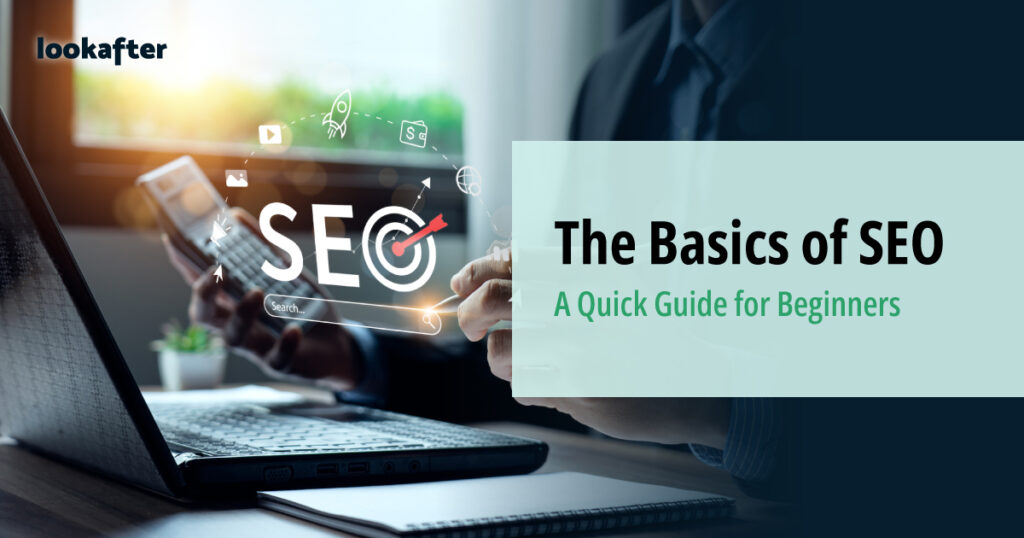Home > Empowering Tips > The Basics of SEO: A Quick Guide for Beginners

In today’s digital age, where the online world is a vast sea of information, having a website is just the beginning. To make sure your website doesn’t get lost in the depths of the internet, you need to understand the basics of SEO (Search Engine Optimization). Don’t worry if you’re not a tech wizard – this quick guide will break down the essentials of SEO in simple terms, perfect for beginners.
What is SEO?
Imagine the internet as a vast library, and search engines like Google, Bing and Yahoo are librarians that help readers (users) to find the books (websites) they are looking for. The goal of SEO is to make sure your book (your website) stands out amidst the sea of other books and captures the attention of the librarians. The librarians then position your book prominently above the rest, making it the first one the reader will choose to read.
How SEO works
1. Choosing the Right Words: Keywords
Keywords are the foundation of SEO, much like the titles of books in a library’s catalogue. These are the words and phrases people type into search engines to find answers to their questions or solutions to their problems. For example, if you run a logistic company, your potential customers might search for “express shipping services”. When people look online for speedy shipping options, your website should pop up if it’s optimized with these keywords.
2. Making Your Website User and Search Engine Friendly: On-Page SEO
Imagine your website’s pages as chapters of a book. Just as chapters have titles, your web pages have titles, too – these are called title tags. For instance, if you have a dedicated page with the title “Air Freight Shipping”, you are telling search engines that this particular page is about the air freight shipping service you provide. As a result, it becomes more likely that your page will appear in search results when users search specifically for air freight shipping services.
3. Gathering Recommendations: Backlinks
Backlinks refer to references or recommendations from other websites that make your website seem trustworthy. When reputable industry websites link to your content, it’s like them endorsing your credibility. As an example, when a renowned supply chain blog mentions your website article on “Efficient Global Shipping Solutions”, search engines acknowledge your expertise and trustworthiness. Consequently, your website gains greater relevance in SEO.
4. Providing a Great User Experience
By ensuring that your pages load quickly, are mobile-responsive, and offer intuitive navigation, you create a positive experience for visitors. When users find it easy to explore your content, spend more time on your site, and access information effortlessly, search engines recognize this positive engagement. As a result, your website gains favour in search rankings because search engines aim to deliver the best possible user experience to their users.
5. Staying Current and Relevant
This involves consistently updating your website with fresh and valuable content that aligns with current trends and user interests. For instance, For example, a logistics website publishing a blog titled “The Role of Technology in Modern Logistics” showcases its industry knowledge and relevance. This ongoing effort not only maintains your website’s credibility and authority but also enhances its visibility in search results, making it more likely for users to discover and engage with your content.
6. Climbing The Ranks
Search engines use algorithms to decide which websites are the best fit for a user’s query. These algorithms take into account various factors, such as keywords that match the user’s query, the overall user experience provided by a website, and the quality and quantity of backlinks pointing to it. By optimizing your website according to these factors, you’re essentially aligning your site with the preferences of the search engine algorithms, increasing the chances of your website obtaining a higher ranking in search results. This improved visibility can lead to increased organic traffic and engagement.
Final Thoughts
Remember, SEO isn’t about tricking search engines, but about providing the best possible experience for your website visitors. By focusing on quality content, relevant keywords, and user-friendly design, you’ll be well on your way to improving your website’s visibility and attracting the right audience. So, whether you’re a business owner, a blogger, or just someone curious about the digital world, understanding the basics of SEO is your ticket to success in the online realm.